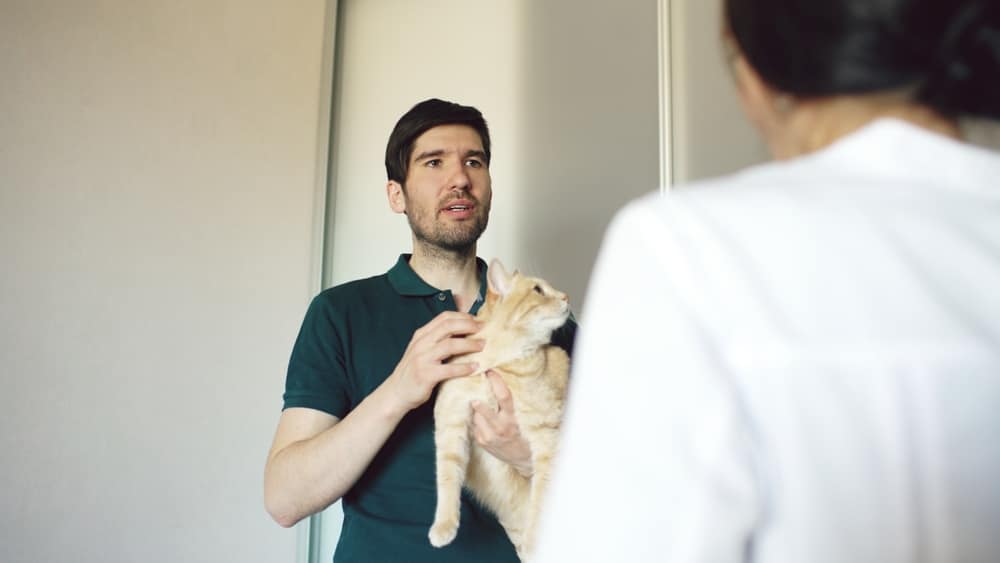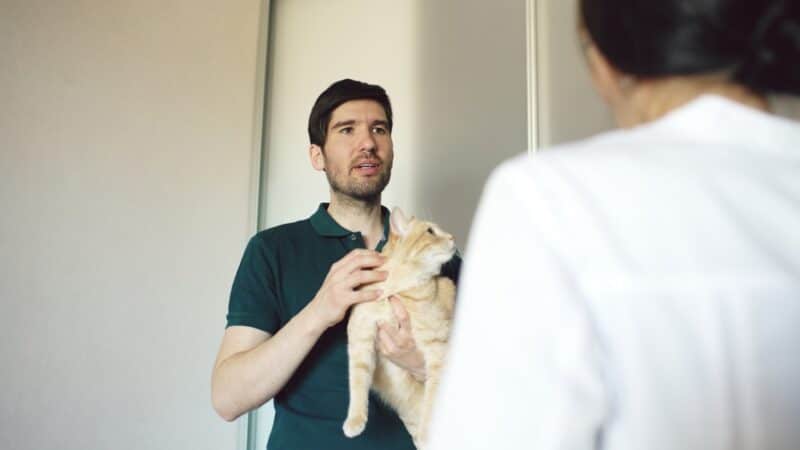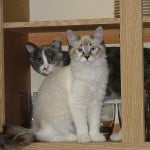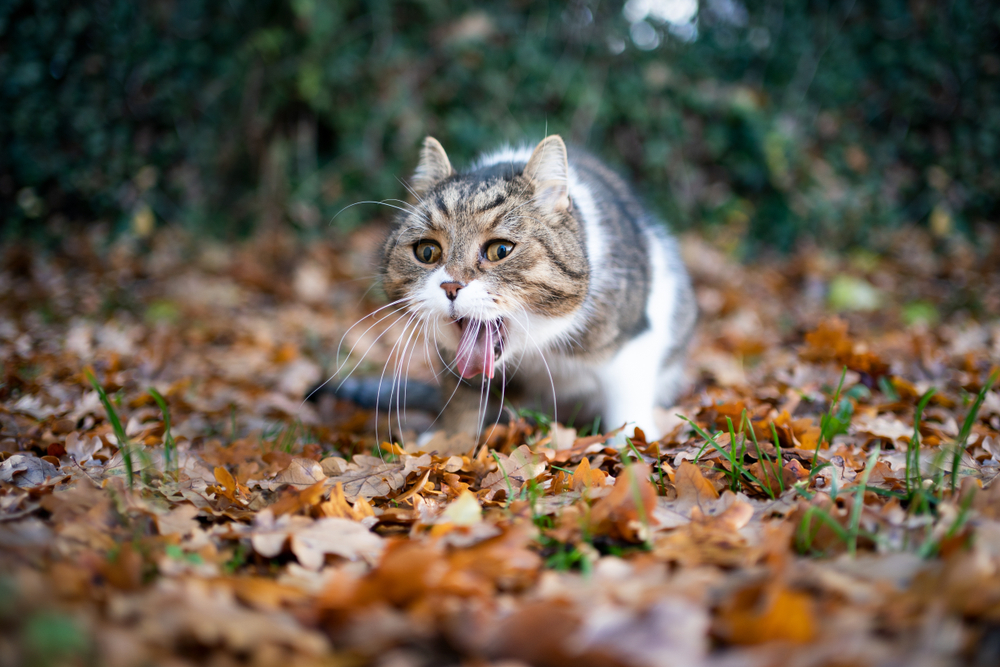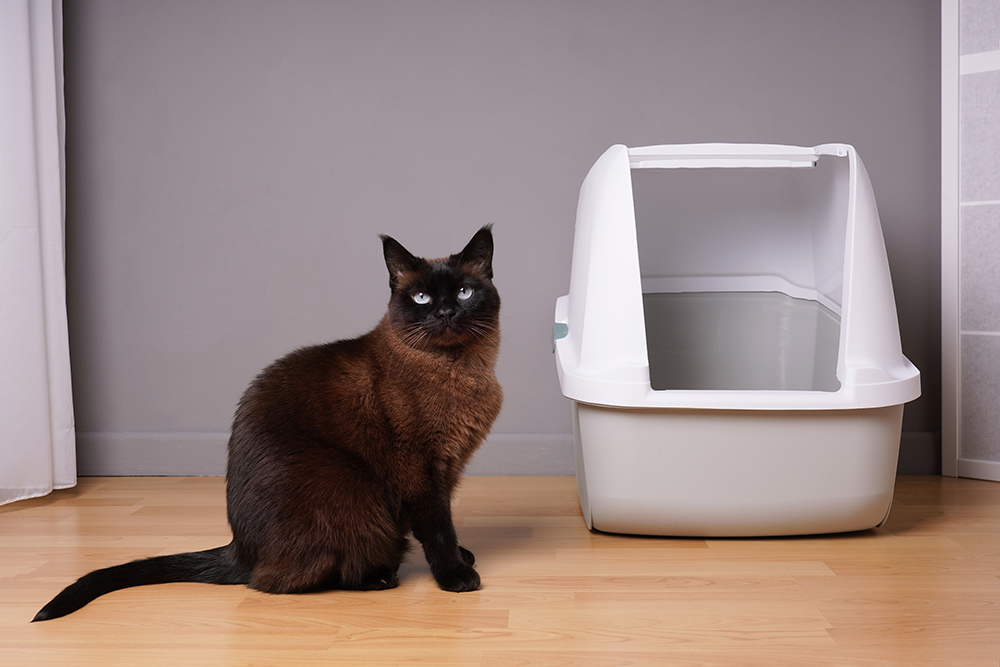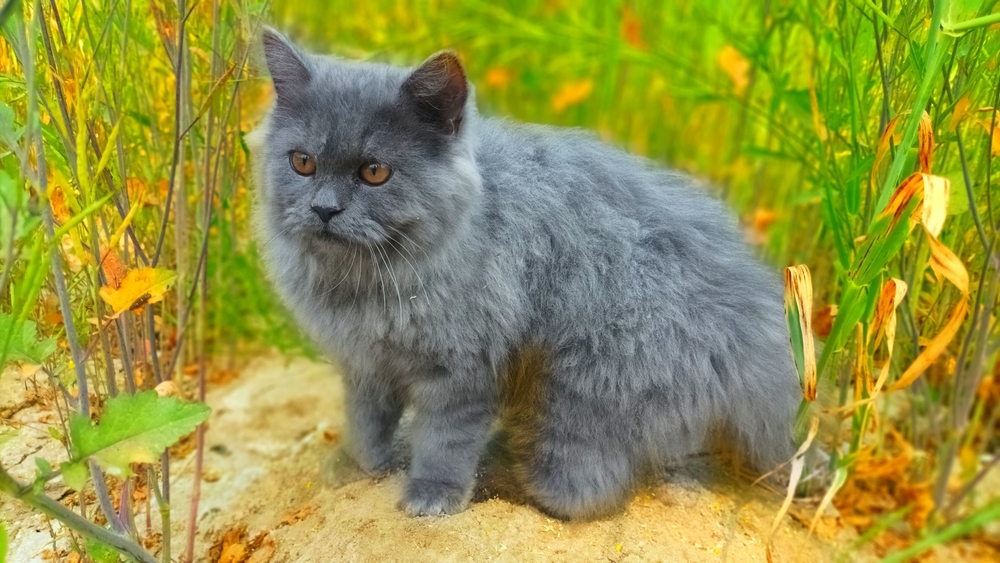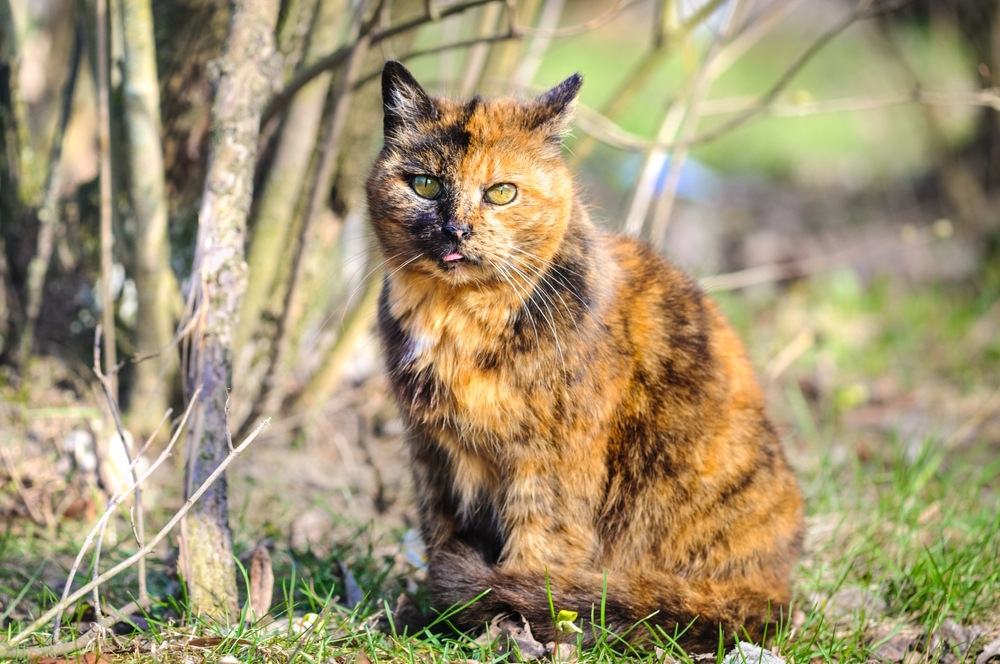Click to Skip Ahead
While a complete and balanced vegetarian diet may meet a human’s nutritional needs, this is not true for cats. Felines are obligate carnivores, meaning they need meat in their diet. More specifically, they need the amino acid taurine that is found in animal tissues. So, no, cats can’t be vegetarian. Those that are fed a strictly veggie diet may develop several health complications, including heart disease, poor eyesight, and poor immune function.

Why Do Cats Need Meat?
Unlike dogs, which are classified as omnivores and can obtain the necessary nutrients from both plant and animal tissue, cats require a high-protein diet. In fact, felines need twice as much protein as canines. An adult cat’s nutritional need for protein on a dry-matter basis is 26%, while for a dog, it is 18% (dry matter entails the nutrients remaining after all the moisture has been removed). These nutritional guidelines are set by The Association of American Feed Control Officials, so you can rest assured that your pets’ nutritional needs are met in the food that you purchase for them1.
Cats are physiologically adapted to consume meat as a part of their regular diet. Feline teeth are designed to eat meat, and the digestive tract is shorter than that of a dog, as digesting meat is easier and faster than digesting fibrous plant matter. Cats may struggle to digest large amounts of starch, as their pancreas secretes less amylase compared to dogs, which is the enzyme needed to break down starch in plant matter.
Felines require taurine in their diet because they cannot synthesize it from other amino acids like dogs can. Amino acids are the “building blocks of life” and combine to form proteins, which have many important roles in the body.
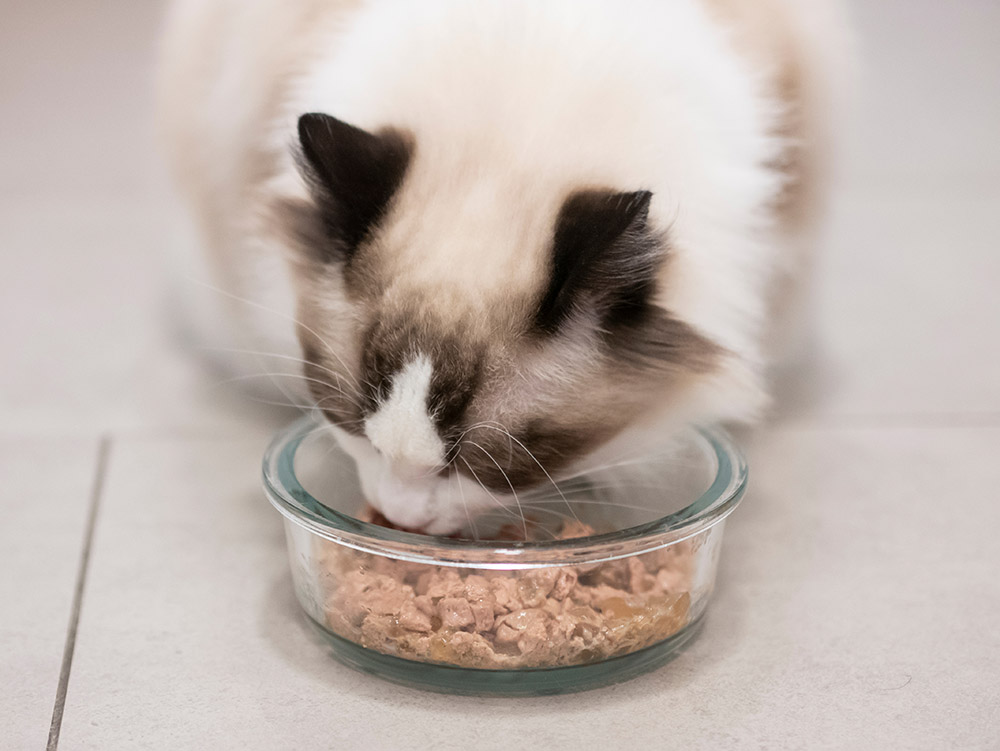
What Benefits Do Cats Get From Eating Meat?
Cats obtain several important nutrients from animal-based tissues, including:
- Taurine and other amino acids
- Essential fatty acids
- Vitamins
- Minerals
- Protein
What Are the Risks of Feeding a Vegetarian Diet to a Cat?
Vegetarian and homemade diets can be difficult to balance correctly, which can lead to nutritional deficiencies. Health concerns include:
- Poor growth
- Skin and coat issues
- Heart disease
- Neurological problems
- Weight loss
- Decreased immune function
- Poor vision
- Digestive problems
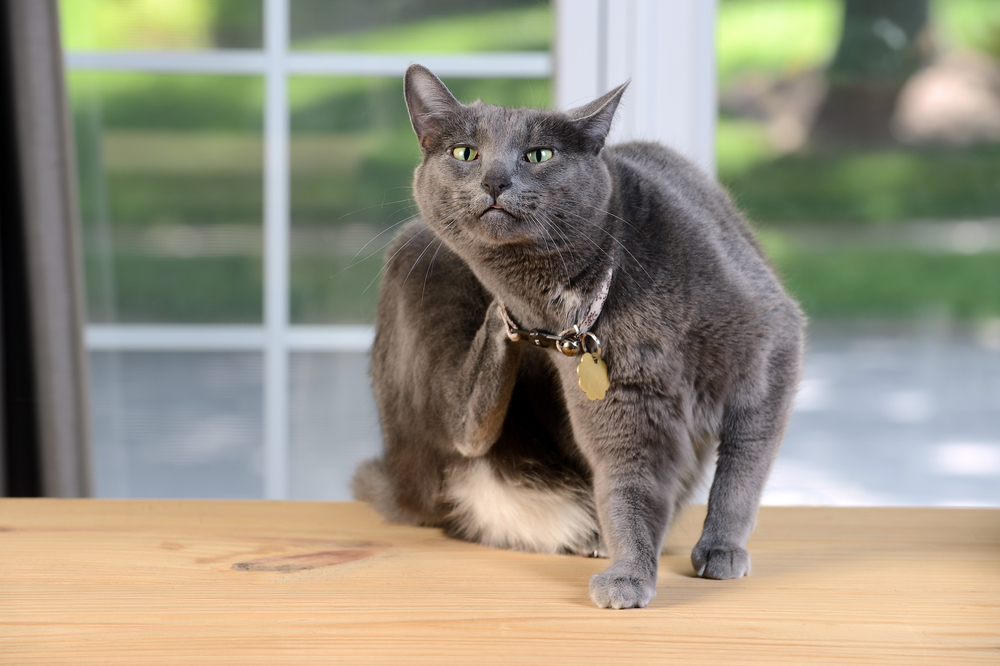
Tips for Keeping Your Cat Safe and Healthy
- Feed them a nutritionally complete and balanced diet made specifically for felines.
- Consult with a board-certified veterinary nutritionist if you want to try a homemade diet.
- Always talk with your veterinarian about your cat’s diet.

Conclusion
Cats require a high amount of protein in their diet and therefore may develop health issues if they are fed a strictly vegetarian diet. This is not to say that cats should never be fed fruits and vegetables! An occasional portion of fruits and veggies can be offered to supplement their diet. Steamed carrots, broccoli, green beans, peas, blueberries, and strawberries are all safe options for cats in moderation, served as treats alongside their regular meat-based meals.
See Also:
Featured Image Credit: silverblackstock, Shutterstock

